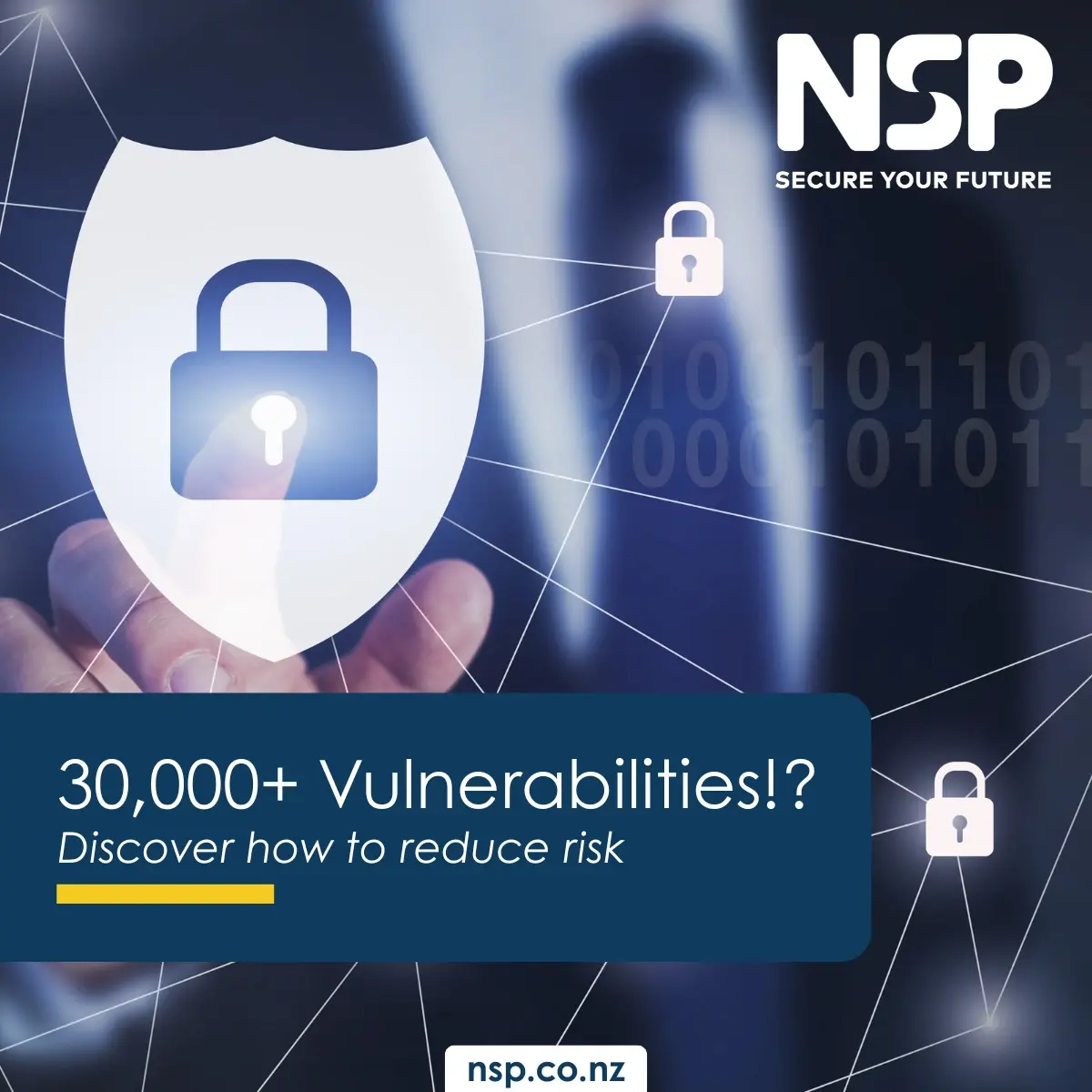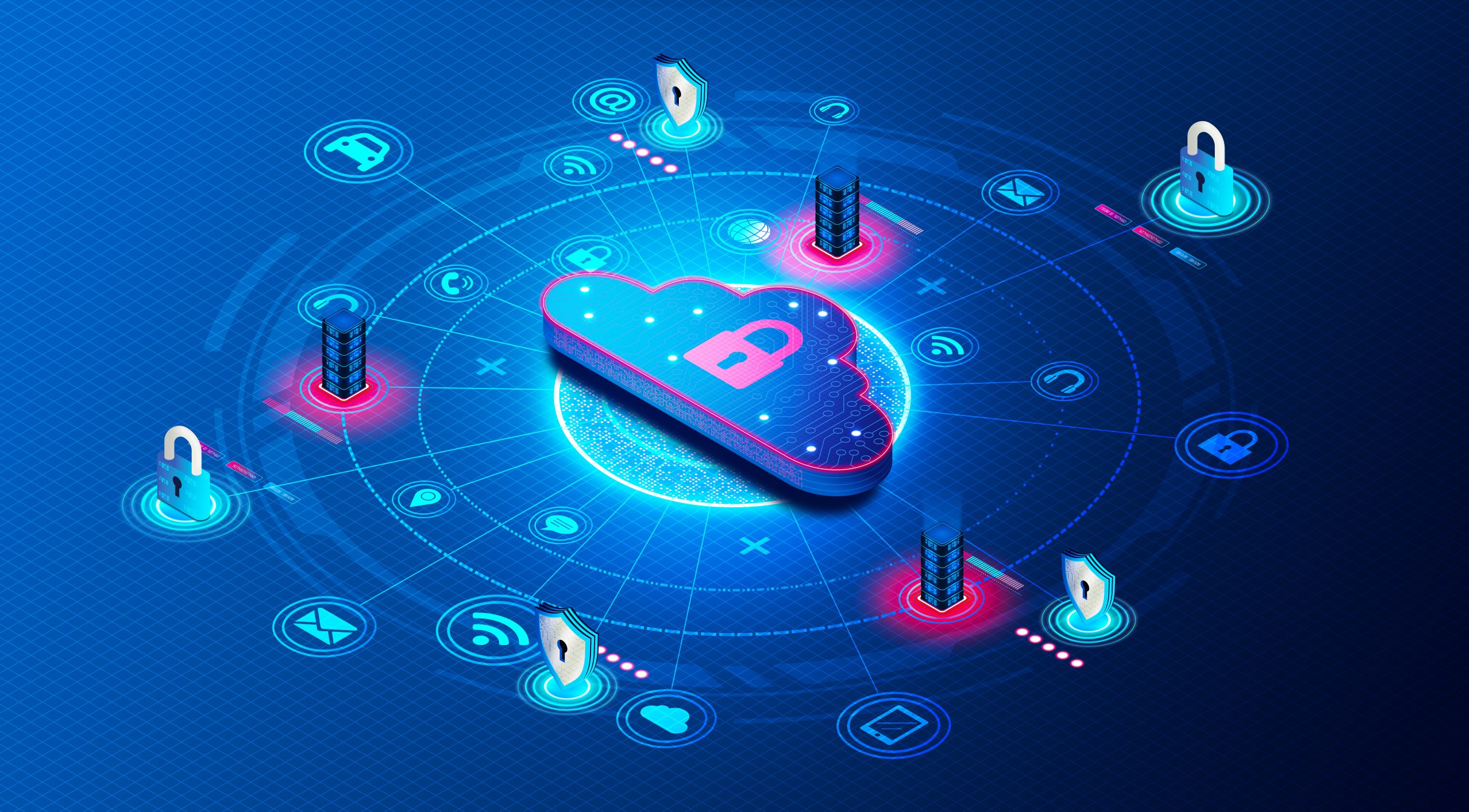Empower Your Security Team: Comprehensive Vulnerability Management by NSP
Enhance your cybersecurity defences with NSP’s comprehensive vulnerability management solution. Utilize real-time monitoring, alerting, and robust automation to swiftly detect and address endpoint patching and configuration issues. Our proactive device monitoring, assessment, and mitigation services quickly identify and resolve potential exposures within your organization.

Identify & Resolve Exposures Quickly: Proactive Device Management
Employ real-time monitoring and tailor-made scripts to pinpoint device and application misconfigurations, fortifying your organization against potential exposures.
-
Real-Time Endpoint Oversight
-
Instant Alerting System
-
Effortless Prioritization
-
Automated Vulnerability Mitigation
Benefits of NSP Vulnerability Managment Solution
Protect with Automation
Protect your business with automated vulnerability scanning that identifies and mitigates potential security threats before they become a problem.
Prioritise with impact
Prioritise the most critical vulnerabilities in your network and systems based on their potential impact, so you can address them with urgency.
Comply with Security
Ensure compliance with industry standards and regulations to maintain a secure posture and protect your sensitive data.
Remediate with Guidance
Remediate identified vulnerabilities with expert guidance on how to patch and reconfigure your systems to minimise the risk of data breaches and other cyber threats.
Identify Your Risks Now: Speak with a Security Expert Today
The importance of vulnerability scanning
As a business leader or C-Level executive in New Zealand, you’re aware that cybersecurity is a pressing concern. With the increasing prevalence of cybercrime and the ever-expanding attack surfaces, it’s crucial to take proactive steps to protect your organisation. If you’re unsure where to start or what a cybersecurity strategy entails, you’re not alone. In this article, we’ll outline key steps to help you begin your cybersecurity journey, starting with vulnerability scanning—a vital first step.

Your Question answered
What is a cybersecurity vulnerability?
A cybersecurity vulnerability is a weakness in a system or host that cybercriminals can exploit, such as missed updates or misconfigurations, compromising IT resources and advancing attack paths. Identifying vulnerabilities is crucial for enhancing overall cybersecurity posture.
What are common types of cyber vulnerabilities?
Misconfigurations: The largest threat to cloud and app security; automation of the configuration process is essential to reduce the risk of errors.
Unsecured APIs: APIs with inadequate security can become easy targets for cyber attackers if not properly secured.
Outdated or Unpatched Software: Unpatched software is an easy target for cybercriminals; regular updates are vital for security.
Zero-day Vulnerabilities: Refers to undiscovered security flaws; timely patching is crucial to mitigate the risk.
Weak or Stolen User Credentials: Reused or weak passwords pose a significant exploitation risk; enforcing strong password policies and implementing multifactor authentication (MFA) is essential.
Access Control or Unauthorized Access: Granting excessive access increases identity-based threats; proper access controls are necessary.
Misunderstanding the “Shared Responsibility Model”: Cloud networks follow a shared responsibility model; understanding and securing the organization’s responsibilities is crucial.
What is vulnerability management?
Vulnerability management is an ongoing process of identifying, assessing, managing, and remediating security vulnerabilities across endpoints, workloads, and systems. It prioritizes risks based on threat intelligence and business operations knowledge.
What to look for in a Vulnerability Management Solution?
Timeliness: Choose a solution with real-time detection to avoid outdated information.
Performance Impact: Opt for an agent-based tool with a lightweight agent to minimize endpoint performance impact.
Real-time Visibility: Ensure the solution provides instant, comprehensive visibility into vulnerabilities.
Simplicity: Integrated platforms with vulnerability management tools simplify cybersecurity without requiring specialized skills.
View more
Learn More About NSP's Cybersecurity Solutions
Penetration Testing services
Penetration Testing services
Designed to simulate real-world cyberattacks on various elements of your IT environment. Assesses the detection and response capabilities of your people, processes, and technology, pinpointing vulnerabilities within your system.
Email Security Service
Email Security Service
NSP secure email services offer end-to-end encryption, ensuring that your messages remain confidential, shielded from third-party interception and unauthorized access.
vCISO
vCISO
Leverage industry leading security expertise in a cost-effective way, suited for your business needs.
Cybersecurity Assessments
Cybersecurity Assessments
Unlock actionable insights to strengthen your cybersecurity posture with our diverse range of cybersecurity assessments. Evaluate your security posture to pinpoint potential vulnerabilities and fortify your defenses against threat actors.
Incident Response
Top Headlines With The Latest News
Keep up to date with our latest resources on cybersecurity, managed services, cloud and modern workplace.
.webp)
Cybersecurity
How Cyber Insurance, Incident Response & MDR Work Together | NSP
How to Use Cyber Insurance to Complement Your Security Strategy
February 18, 2026

Managed services
Reactive IT vs Proactive Control: What NZ SMEs Really Need
Reactive IT vs Proactive Control: What NZ SMEs Really Need
February 16, 2026

Managed services
What Reactive IT Actually Costs NZ SMEs
What Reactive IT Actually Costs NZ SMEs
February 16, 2026

Cybersecurity
AI & Cybersecurity Predictions for 2026
AI & Cybersecurity in 2026: The Threats That'll Keep You Up at Night (And the Defenses That Won't)
January 7, 2026

Cybersecurity
30,000+ Vulnerabilities Disclosed: What to Prioritise | NSP
30,000+ Vulnerabilities Disclosed: How to Prioritise What Actually Matters
December 28, 2025
Let’s stay in touch!
Enter your details below to stay up-to-date with the latest IT solutions and security measures.




